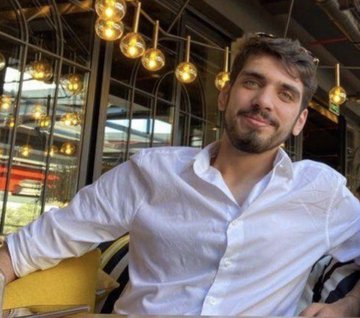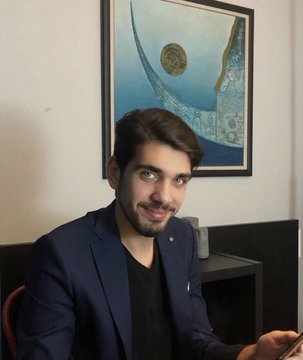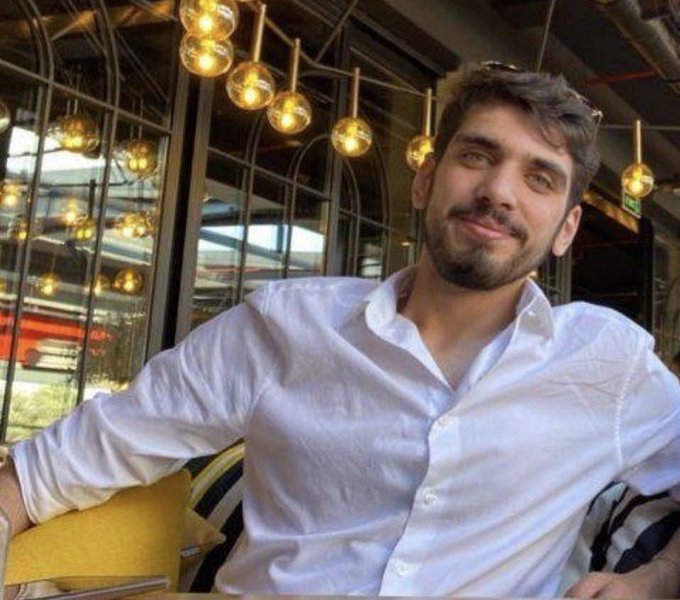Protesters are back n the streets in Iraq. The October Revolution continues. They toppled prime minister Adeal Abdul-Mahdi. They assisted Shi'ite cleric and one time movement leader Moqtada al-Sadr with his destruction as a leader outside of his cults in Sadr City and Basra. Mustafa Kadhimi, the current prime minister, came to power because of the protesters and came to power promising to stop the attacks on the protesters. He's done nothing in his year plus and counting.
Protesters continue to be assaulted at protests by government forces (militias) and they continue to be assassinated. Mustafa has given lip service and that's about it. He did have one militia leader arrested but he (and the courts) buckled under pressure and let the assassin go.
And now elections are supposed to take place in October. Some members of The October Revolution have stated that they will not be voting because there concerns are ignored by the government. Mustafa has been trying to woo them. He has a formidable opponent in Nouri al-Maliki's State Of Law. In his latest, I've-done-nothing-but-I-want-your-vote effort, he's visited a hospital to meet with Ali al-Mikdam. Who?
Tonight, Sura Ali (RUDAW) reports
Ali al-Mikdam, activist and journalist, was tortured by his kidnappers
before they released him, according to a source close to him. The source
said Mikdam was not freed by security forces, as has been reported.
Mikdam, 22, is an Iraqi activist who participated in the October 2019
protest movement and a campaign to end impunity that is planning
demonstrations inside and outside the country for July 18. He was in
Baghdad this week and went missing on Friday evening.
The source, who spoke on condition of anonymity, said Mikdam's
kidnappers let him go, leaving him close to the al-Dora highway south of
Baghdad. Mikdam made his way to the nearest security checkpoint where
they brought him to hospital.
Prime Minister Mustafa al-Kadhimi visited Mikdam on Saturday night in
hospital, checking “on the health of journalist and activist Ali
al-Mikdam in one of Baghdad’s hospitals after security forces released
him from his kidnappers,” the PM's office tweeted.
The source told Rudaw English on Sunday that “Ali was severely tortured,
he cannot walk, and security forces don’t want us to say that he was
not liberated by them."
Of course, Mustafa wants to lie about it -- he's a complete failure. He's all lies and pretense and desperate to be re-elected so he wants to lie.
He was supposed to be a one-term prime minister, he was supposed to quickly implement elections. Now he wants a second term and he's done nothing, accomplished nothing. Those were the reasons, please remember, that Adil Abdul-Mahdi was forced out of office.
Let's again note a column by Ibrahim al-Zobeidi (ARAB WEEKLY):
It was expected and hoped that the first visit of President Abdelfattah al-Sisi to Iraq with King Abdullah II would be an opportunity to assert a firm and decisive Arab position about Iranian occupation and an explicit rejection of all its encroachments on freedom, dignity and sovereignty in Iraq, along with its militias’ tampering with the security of millions of Iraqis and the security of neighbouring countries.
This is more so that their host was Prime Minister Mustafa al-Kadhimi, who had just returned from Diyala, after he performed the oath of obedience to the Popular Mobilisation Forces (PMF) who paraded, in front of him, with their tanks, cannons and other advanced weapons.
Through their parade, the PMF wanted to inform the Iraqi National Army, the commander-in-chief of the armed forces, the government, the parliament and the judiciary that the Iraqi state had vanished after a short life span of one hundred years.
Without much ado one can just say that this summit was stillborn, because one of the three sides is impotent and incompetent to debate the other two.
Egyptian President Abdelfattah al-Sisi has the last word in the Egyptian state and he can discuss any high and major sovereign matter with his counterparts in other countries and can take the final decision on behalf of one hundred million Egyptians, without waiting for the approval of another state within the Egyptian state or outside it.
There are no popular mobilisation forces in Egypt, nor does Egypt have a neighbour like Iran.
King Abdullah bin Al Hussein of Jordan is also a decision-maker. One of his powers is to represent the Jordanian government, parliament, the army and the people and to take the decisions that serve best the interests of Jordanian citizens for now or in the near and distant future.
As for the one representing the Iraqi state in the meeting hall, it is another story. He is the author of promises that are not fulfilled, of random, improvised policies and of doubts that make him one of the loyalists approved by the Iranian regime and its militias. In short, he is not fit to be a real representative of forty million Iraqis or to take an independent national decision.
This is especially the case if the talks touched on major issues, such as unifying positions on matters of national and pan-Arab security that are larger than electrical grid connections or economic issues of mutual interest, for the Iraqi side is not allowed to go beyond its carefully drawn red lines.
Mustafa. It's supposed to mean "the chosen"; however, in modern day Iraq, it translates as "failure."
The e-mail address for this site is common_ills@yahoo.com.




